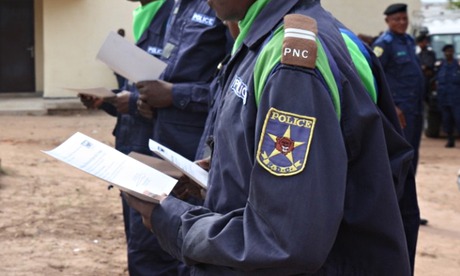Violence Against Women
Source: The Guardian
Concern is mounting that British aid money may be funding police who are using rape as a tool of state-sanctioned torture against women in the Democratic Republic of the Congo (DRC).
The claims emerged during last week's Ending sexual violence in conflict summit in London hosted by the UK foreign secretary, William Hague, and Angelina Jolie.
A report from the charity Freedom From Torture (FFT), has collated medical evidence from 34 female political activists who have fled to the UK from DRC. It has found that the country's police and security personnel are systematically raping President Joseph Kabila's female opponents.
This evidence has raised questions about the UK government's programme to give more than £60m to the Congolese national police and "internal security sector" to improve its performance and accountability.
The programme, run by the Department for International Development (DfID), states: "This programme will benefit Congolese citizens through improved security and justice delivery with a special attention to women and girls."
One female political activist who fled to the UK after being detained, raped and tortured by police in the Congolese capital, Kinshasa, said: "Many are raped by secret police and other security officials. When I was living in Congo I didn't see any improvement in the police. Perhaps the money from the UK government is making the police stronger so they can rape us more. While William Hague is calling for the elimination of rape as a weapon of war, his government is funding a police force that rapes with impunity."
The new report follows the emergence of a leaked, secret document earlier this year. The document, bearing the letterhead of the Congolese Ministère de L'Intérieur and Police Nationale Congolaise instructs police and other security personnel to track down and arrest government opponents. It suggests that torture against them should be used "with discretion".
Usually, the media focus of rape in DRC is on the conflict zone in the east of the country, but the FFT report examines the fate of female political activists in the capital, Kinshasa, and other parts of the country.
It finds that women have been imprisoned in state detention facilities and in many cases gang-raped by up to 10 police or other officials.
A spokesman for DfID said they did not provide "any direct aid to the Congolese government" and instead relied on international agencies to "improve the police's human rights record and provide increased accountability for the police".
DfID is working with contractors PricewaterhouseCoopers, DAI Europe and Effective Development Group on this programme.
"We condemn strongly any abuse of people's basic rights and we have raised our concerns at the very highest level," the spokesman said.

Jean-Benoît Louveaux, FFT's policy and advocacy manager, welcomed DfID's attempts to improve the DRC's police force. "However, for this commitment to be meaningful, DfID and the UK government must also apply pressure on the DRC to comply with its international human rights obligations, including on torture. It is completely unacceptable to the torture survivors who feature in our report that the DRC has been allowed to get away with not reporting to the UN Committee on Torture for nearly 10 years."
In one woman's case, an FFT doctor documented 74 scars, 68 attributable to torture and 56 attributable to a specific incidence of gang rape. The women described being beaten, hit with rifle butts, rubber truncheons and belts as well as being held face down and stamped on.
Women were raped vaginally, anally and orally and some contracted sexually transmitted infections, including HIV. Two women became pregnant as a result of the rapes. All 34 were diagnosed with post-traumatic stress disorder.
The type of "crimes" the female political activists were punished for included storing and distributing political leaflets, banners and T-shirts and attending meetings and demonstrations.
In international law, rape committed by state officials can be defined as an act of torture, but in the DRC, rape as an act of torture goes unacknowledged and unprosecuted, according to the report. It says that members of the security services can commit human rights violations with complete impunity, and calls on the UK Home Office to update its guidance about returning women to DRC who have suffered sexual violence.
Dr Juliet Cohen from FFT, said: "What is particularly shocking is the frequency of sexual violence and the frequency of gang rape endured by these women."
Asked whether it will return asylum seekers to DRC based on the new evidence of rape and torture, a Home Office spokesman said: "Every application is considered on its individual merits and staff are given clear guidance and training on a range of issues, including sexual violence. We will carefully consider this report's findings."
